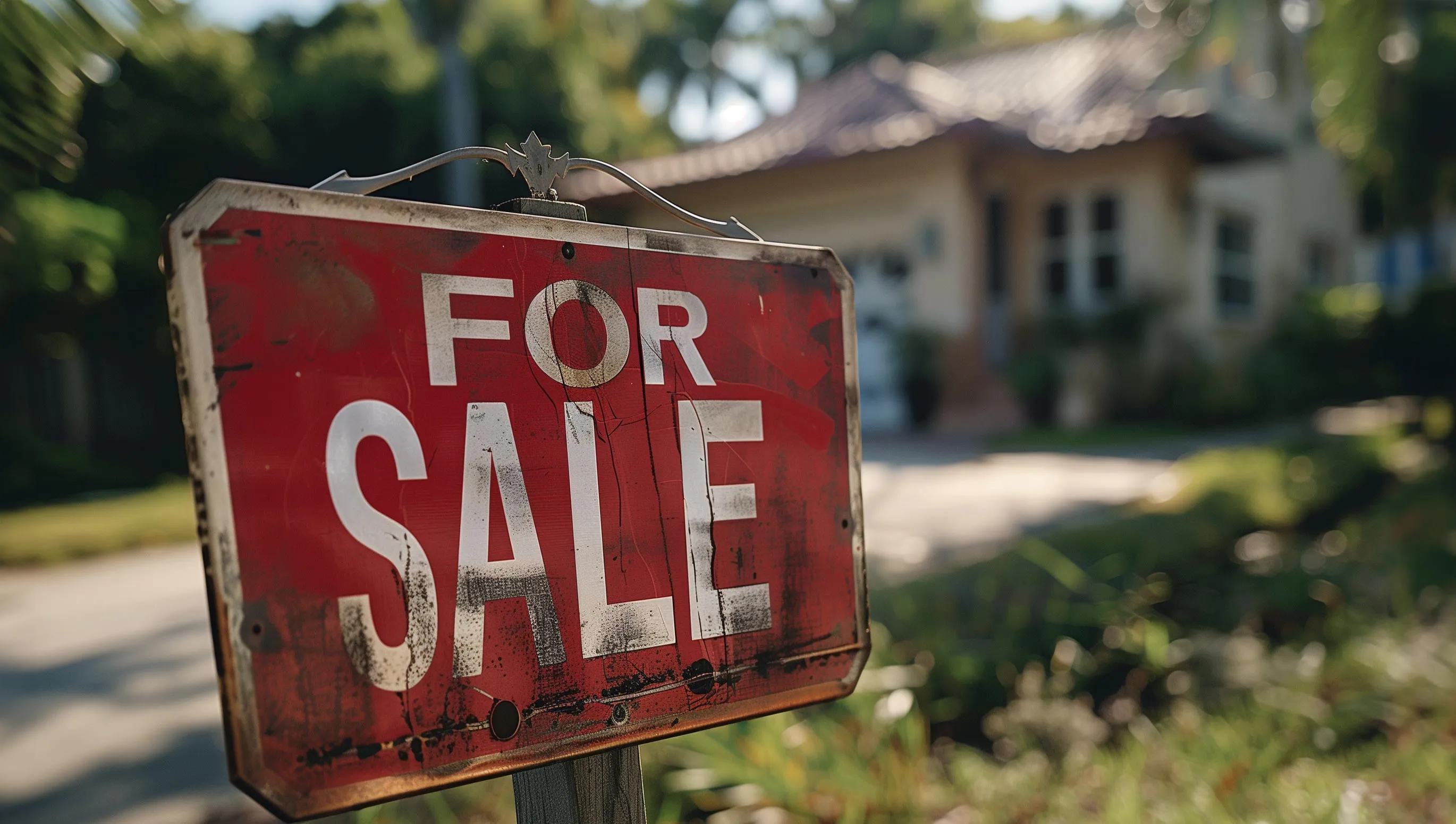Imagine you want to sell your house and are thinking about taking the plunge without an estate agent. This can be an exciting challenge, but it also has its pitfalls. When selling without professional assistance, it's easy to fall into some traps that are not only nerve-wracking, but can also be expensive. In this article, we look at the most common mistakes that can happen when selling a house without an estate agent and give you practical tips on how to avoid these stumbling blocks. That way, you'll be well prepared to sell your home successfully and with as little stress as possible.
Personally, I was very glad that the seller of my property didn't use a real estate agent, as this meant I could save on this very expensive commission. Because let's be honest: some people have to work for over a year for what the estate agent receives in commission.
Let's get on with it!
Table of contents
Mistake no. 1: Lack of market knowledge and incorrect pricing when selling a house without an estate agent

When selling your home without the help of an estate agent, it is crucial to have a thorough understanding of the local real estate market. Without in-depth market knowledge, you risk setting the wrong price, which will either put off potential buyers or result in you not getting the maximum value from your property. In this section, we highlight the importance of market knowledge and offer strategies for accurate pricing.
The relevance of sound market knowledge: A thorough analysis of the local real estate market is essential to determine the realistic value of your home. This includes understanding the current supply and demand situation, the prices of comparable properties in your area and the prevailing market trends. Lacking this insight, the price you set for your home could be too high or too low, which can significantly impact the selling process.
Strategies for setting an adequate price:
- Thorough market analysis: start with a comprehensive research of the real estate market in your area. Observe the sales prices of similar properties and how long they have been for sale.
- Expert valuation: Even without an agent, an independent property valuation can provide valuable insight into the true value of your home.
- Consider unique selling points: Every home is unique. The special features, condition and location of your home should be reflected in the pricing. The history should also be included.
- Flexibility in pricing: Be prepared to adjust your price based on feedback from the market and prospective buyers to maintain a realistic chance of selling.
Accurate pricing is a critical aspect of selling your home without an agent. By researching the market and making an informed valuation, you are laying the foundations for a successful sales process.
Mistake no. 2: Poor presentation of the house / unprofessional exposé
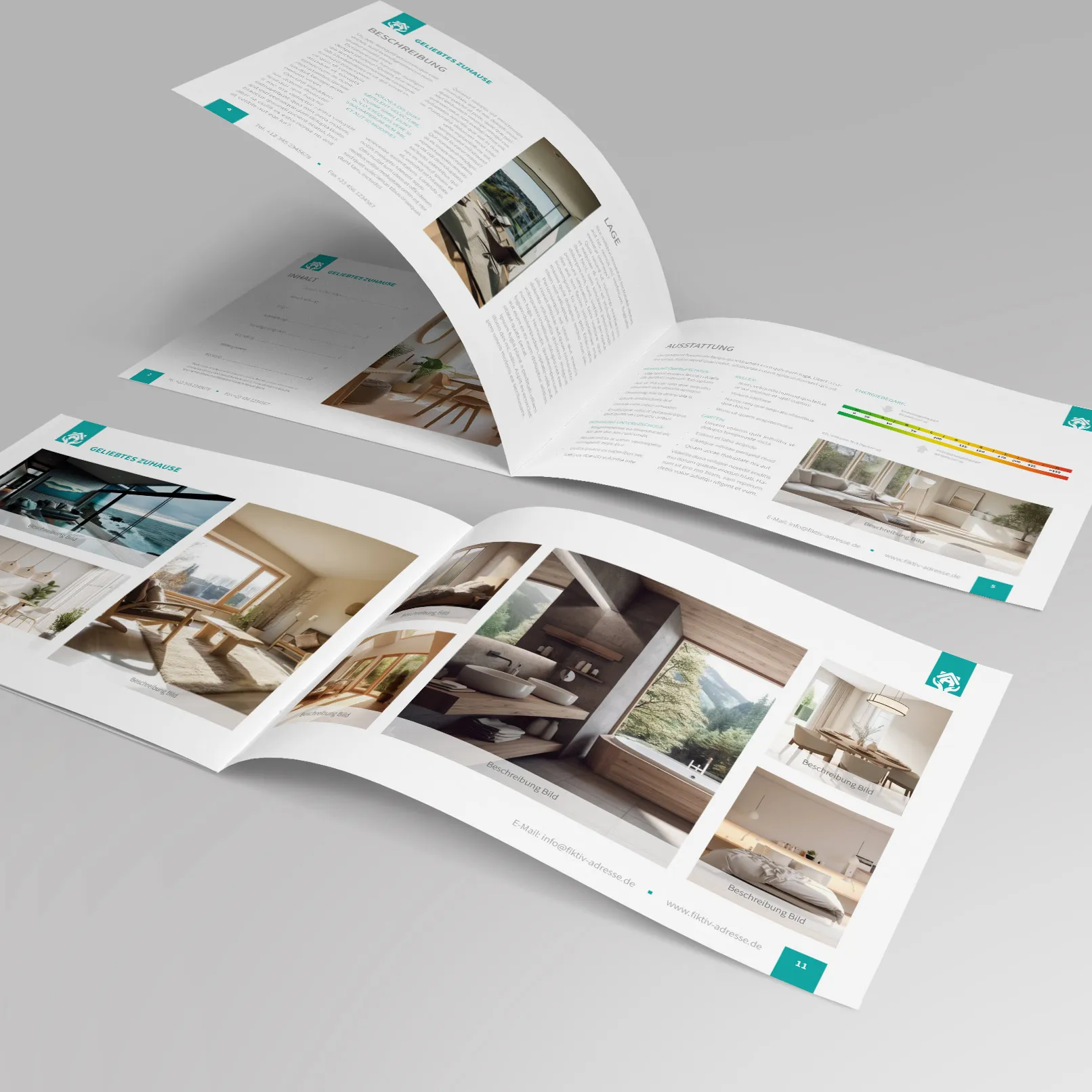
A compelling presentation of your home is crucial to attracting potential buyers and ensuring a successful sale. Poor presentation can make your home look less appealing and therefore stay on the market longer or sell below value. In this section, you'll learn why a professional presentation is so important and how to best prepare your home for sale.
A good exposé should be informative and appealing: it summarizes the essential details of a property without overdoing it. The aim is to arouse the interest of potential buyers while remaining honest and not hiding anything or advertising too much in order to avoid disappointment later on. It pays to prepare the property properly for the presentation or even stage it optimally through home staging and to rely on high-quality photos, ideally taken in good weather. Also, don't forget to mention any special features such as a convertible loft or garage in the exposé so that buyers can get a complete picture. Creating an exposé takes a lot of effort, unless you use ready-made templates that you can download here.
The importance of a professional home presentation: First impressions count. Potential buyers often form an opinion about a house within the first few minutes. An appealing presentation can increase the perceived value of your home and positively influence the purchase decision. A neglected presentation, on the other hand, can deter even interested buyers.
Tips for a successful presentation of your home:
- Thorough cleaning: make sure your home is sparkling clean inside and out. A clean environment looks inviting and well-maintained.
- Depersonalization: Remove personal items so that visitors can better imagine themselves living in the house.
- Small repairs: Fix obvious defects, such as dripping taps or squeaky doors, to leave a neat impression. I like to use an eraser to quickly correct dark spots on the white wall.
- Home staging: Consider professional home staging to present the rooms in the best possible way and emphasize the advantages of your home.
- Good lighting: Make sure there is enough light to create a warm and inviting atmosphere. Open curtains and, if possible, turn on all the lights.
- Smell: Air out the room well before the appointment and, above all, make sure it doesn't smell of pets or lunch (although freshly baked cookies are okay). Clean the floor with a nice smelling floor cleaner if necessary.
- Appealing photos: Invest in professional photography to best showcase your home in online listings. High quality images can make all the difference and generate more viewings. Only take photos in sufficient daylight, even better if the sun is shining. They should also not show any personal items.
- The outside area must be in tip-top condition: Be sure to have the lawn mowed and everything else should also be nice and tidy so that potential buyers feel right at home even before they view the inside of the house.
- Be well-groomed yourself: A well-groomed appearance during a home viewing exudes professionalism and trustworthiness, which can positively influence potential buyers. It also reflects the care and condition of the property, which is crucial for the first impression and interest of prospective buyers.
Conclusion: A careful and thoughtful presentation of your home is essential to be successful in the real estate market. With a clean, well-maintained and attractively designed environment, you can pique the interest of potential buyers and increase the chances of a quick and lucrative home sale.
Mistake no. 3: Neglecting the legal aspects of selling a house
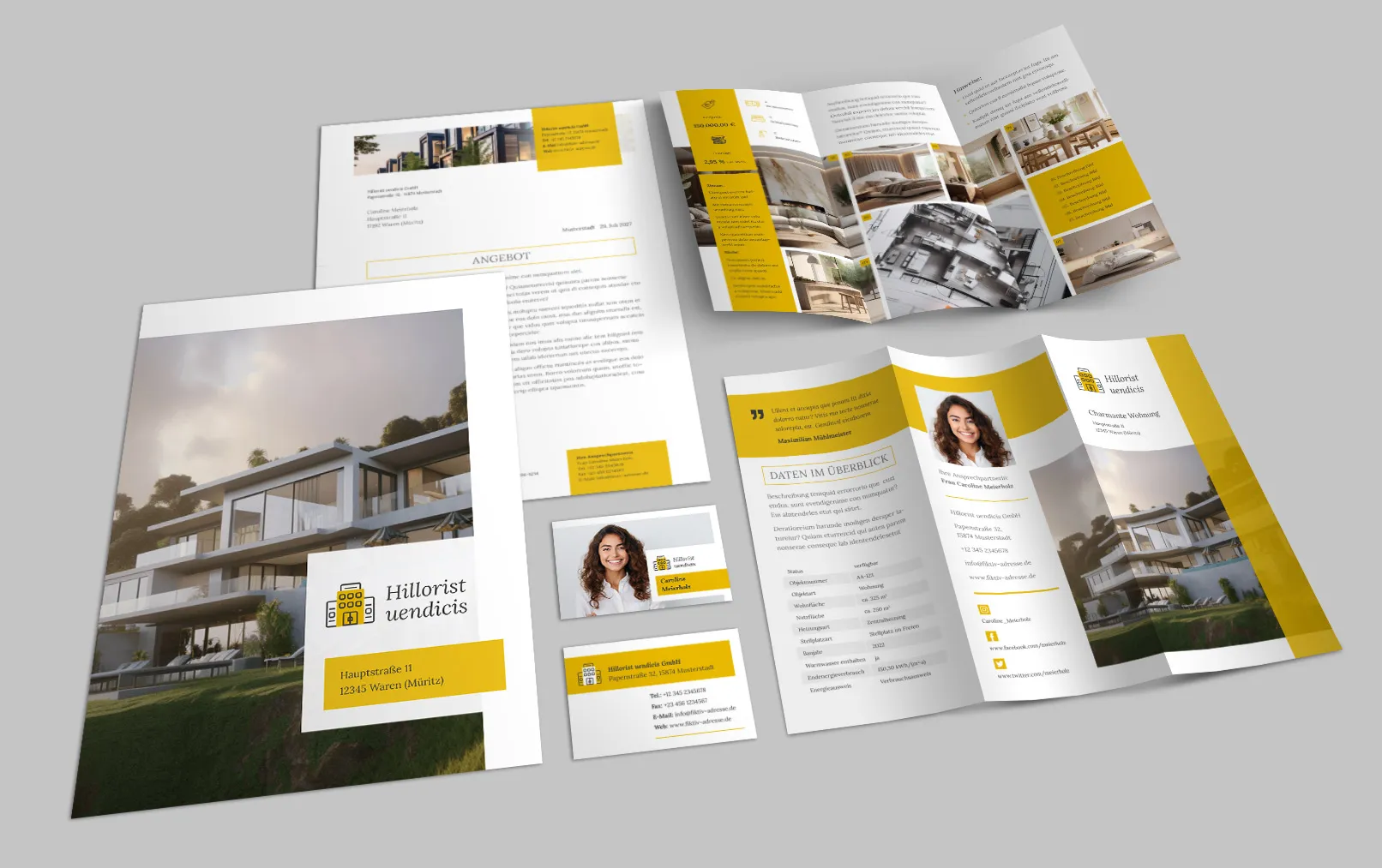
Selling a house is not only a financially complex process, but also a legally complex one. Neglecting legal aspects can lead to considerable delays, additional costs or even legal disputes. In this section, we look at why it's essential to consider the legal framework and how to ensure your house sale is smooth and compliant.
The importance of legal diligence when selling a house: Legal errors can not only delay the sales process, but also jeopardize the validity of the sale. Incomplete or incorrect documents, disregarding legal regulations or overlooking important contractual details can have serious consequences.
Measures to ensure legal compliance:
- Understand the legal requirements: Familiarize yourself with the legal requirements that apply to home sales in your region. This includes building regulations, energy certificate requirements and possible pre-emption rights. For example, an extract from the land register, structural calculations, invoices for repairs, measurement and control technology logs and heating maintenance logs would be useful.
- Professional contract preparation: Do not leave the preparation of the purchase contract to chance. Consider hiring a notary or lawyer to ensure that all legal provisions are complied with so that no defects are included in the purchase contract.
- Disclosure of defects: Be transparent about existing defects in the home. Failure to disclose can lead to subsequent claims.
- Careful documentation: Put all agreements in writing and ensure complete documentation of the sales process.
- Professional advice: Don't hesitate to seek legal advice if anything is unclear. A real estate lawyer can help you avoid pitfalls and protect your rights.
Paying attention to legal aspects is a critical point when selling your home. Thorough preparation and professional support can help you to ensure the sale is legally compliant and without any unexpected obstacles. This will protect you from potential legal complications and ensure a transparent and fair sales process.
Mistake no. 4: Inadequate marketing of the property
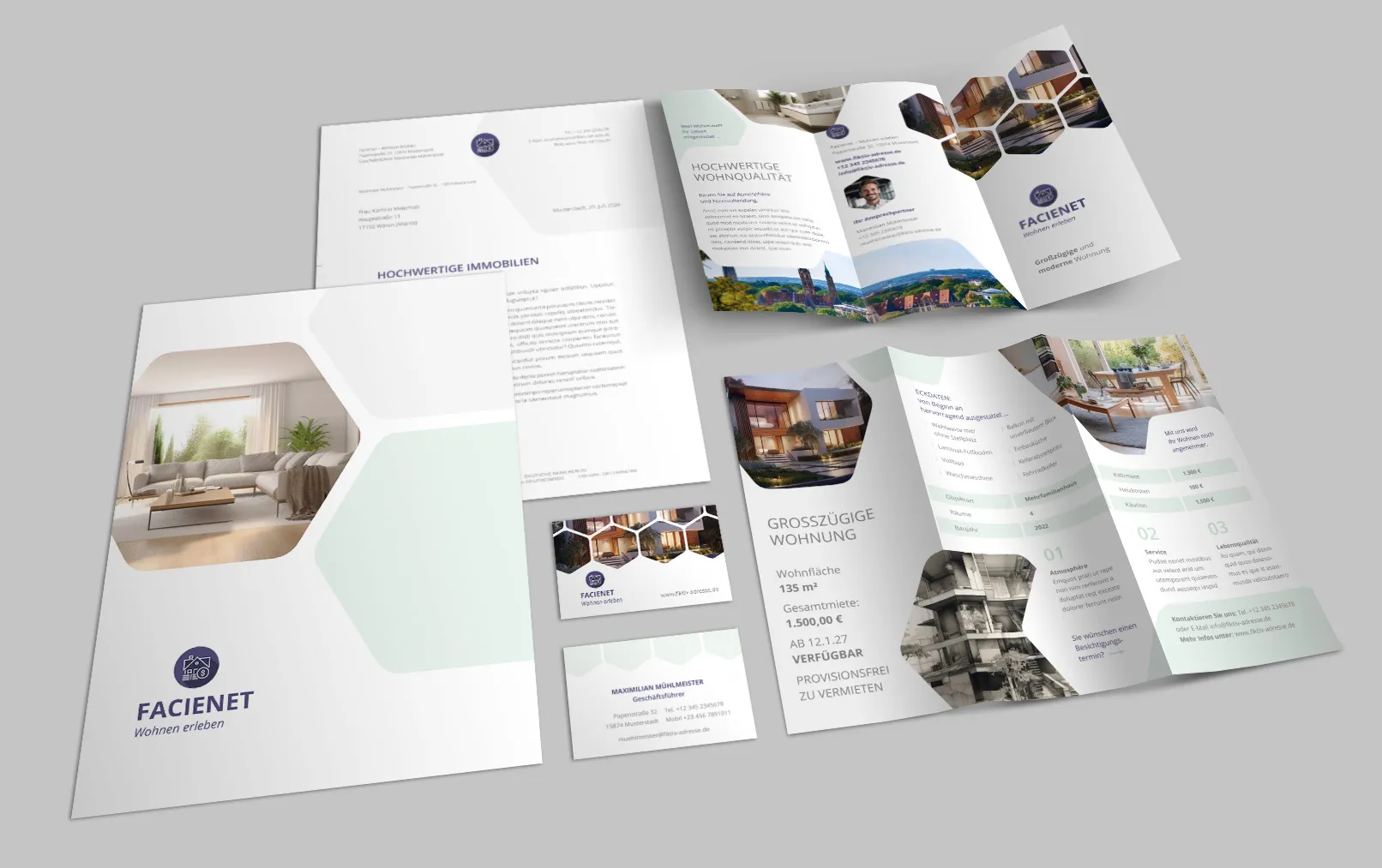
Effective marketing is crucial to showcase your home to a wide audience and achieve the best possible sale price. Inadequate marketing can lead to your home staying on the market longer or you having to compromise on the sale price. In this section, you'll learn how a lack of marketing can get in the way of your selling success and how to promote your home effectively.
The importance of targeted marketing: Without a strong marketing strategy, your home may not reach the right buyers, significantly reducing the chances of selling and the price you can achieve. Well thought out marketing will ensure that your home gets the attention it deserves.
Strategies for effectively marketing your property:
- Online presence: use online real estate portals to make your home accessible to a wide audience. A strong online presence is essential as most buyers start their property search on the internet.
- High-quality photos and videos: Invest in professional photography and video tours if necessary (smartphone will do, if done well) to best appeal to potential buyers and highlight the benefits of your home.
- Descriptive text: Create a detailed and appealing description of your property. Highlight special features and describe the neighborhood to generate interest.
- Social media: Use social media platforms to promote your home and gain a wider reach. Targeted posts and ads can generate additional attention.
- Open house events: Consider hosting an open house event to give prospective buyers the opportunity to experience your home in person and see it for themselves.
- Networking: Tell friends, family and acquaintances about the sale of your home. Personal networks can often provide valuable contacts to potential buyers.
- Exposé templates: Use our very modern exposé templates, for example, so that your house is a real eye-catcher in advance as a PDF file or later as a printout.
A well thought-out and comprehensive marketing strategy is crucial to selling your home effectively. By using different channels and presenting your home professionally, you maximize visibility and increase the chances of finding the right buyer and achieving an optimal selling price.
Mistake no. 5: Incorrect assessment of the target group
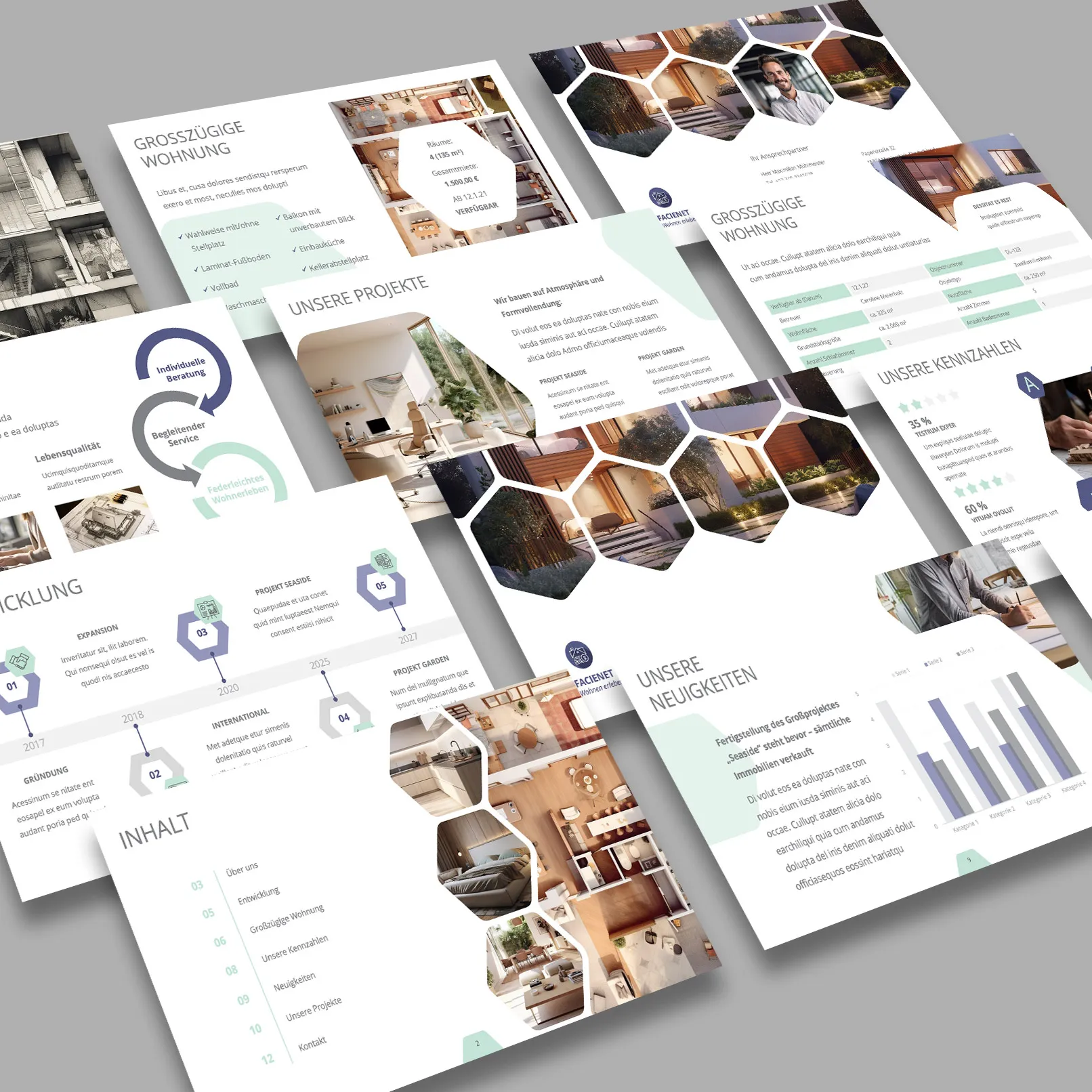
Identifying the right target group for your home is a crucial step in making the sales process efficient and successful. An incorrect assessment of the target group can lead to your marketing efforts coming to nothing and the sale dragging on unnecessarily. In this section, you'll learn why it's so important to properly understand your home's potential buyers and how you can tailor your marketing strategy accordingly.
The importance of targeting the right audience: Knowing who is most likely to be interested in your home allows you to focus your marketing efforts and tailor your approach. This increases the likelihood that your home will sell faster and for a better price.
Strategies for identifying and targeting the right audience:
- Market analysis: research the local real estate market to understand which groups of buyers are currently most active. This could be families, young couples, professionals or senior citizens.
- Home features: Consider what specific features of your home might appeal to certain groups of buyers. For example, a large garden could appeal to families, while a central location could be of particular interest to professionals.
- Target group-oriented marketing: Tailor your marketing materials, such as advertisements and viewings, to the needs and wishes of your target group. Use language, images and messages that resonate with the preferences of potential buyers.
- Use feedback: Gather feedback from viewings and prospective buyers to refine your assessment of your target audience and adjust your strategy accordingly.
- Communication: In your communication, make sure you emphasize the aspects of your home that are particularly relevant to your target audience in order to attract and retain their interest.
An accurate assessment of your target audience is essential to effectively market your home and promote a quick sale. By understanding who your potential buyers are and what they are looking for, you can target your sales efforts and increase the chances of selling your home successfully and at an optimal price.
Mistake no. 6: Unprofessional communication with prospective buyers
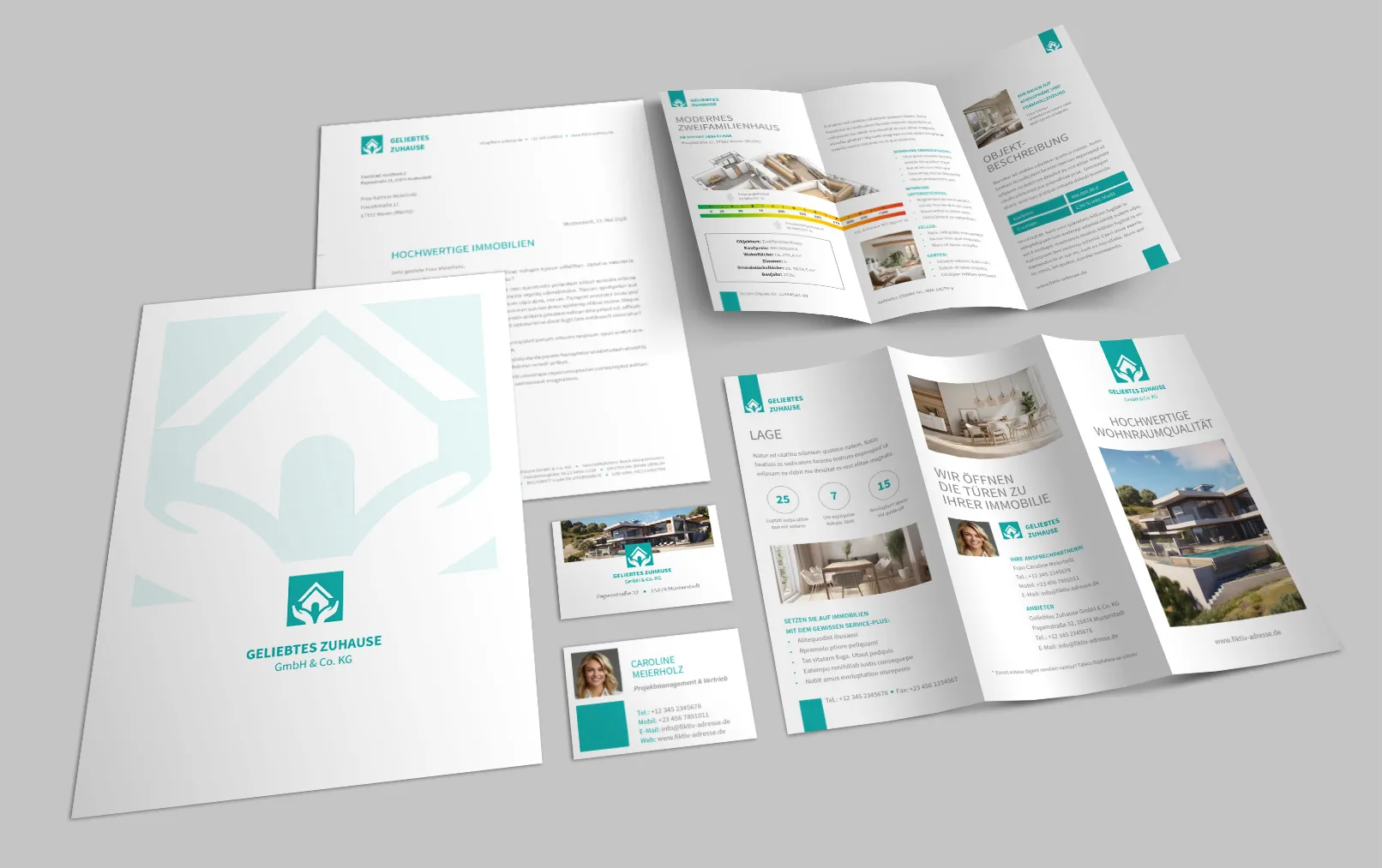
Clear, polite and professional communication is crucial to building trust with potential buyers and moving the sales process forward. Unprofessional behavior or poor communication can put off prospective buyers and jeopardize the sale. In this section, we'll cover why professional communication is so important and how you can ensure your interactions with prospects support sales success.
The importance of professional communication: Professional communication creates a positive atmosphere, promotes trust and can be crucial to making a good first impression. Prospects are more inclined to negotiate with a salesperson who communicates competently, respectfully and reliably.
Strategies for professional communication with prospective buyers:
- Quick response: be responsive and reply promptly to inquiries or messages from prospects to show that you take their interest seriously (feel free to give out your WhatsApp number).
- Clarity and precision: Make sure your communication is clear and understandable. Avoid jargon that might be difficult for laypeople to understand and be precise in your statements.
- Courtesy and respect: Remain polite and respectful in all interactions, even when questions or comments are repeated or when prospects are critical.
- Reliability: Keep promises and commitments, whether it's about providing information or scheduling viewings.
- Active listening: Show genuine interest in the needs and questions of prospective buyers. Active listening can help to understand and respond to the specific requirements and wishes of potential buyers.
- Professional presentation: Make sure that written communication, such as emails or information brochures (use our modern exposé templates, for example), is also professional and error-free.
Professional communication is a key element in the successful sale of your home. By treating prospective buyers with respect, clarity and reliability, you can build a trusting relationship that will positively influence the sales process and increase the likelihood of a successful closing.
Mistake no. 7: Neglecting the negotiation process

The ability to negotiate effectively is crucial to getting the best possible result when selling your home. Neglecting to negotiate can lead to you selling below market value or losing out on potential buyers. In this section, we'll discuss why good negotiation skills are so important and how you can strengthen your negotiation skills to ensure a successful sale.
The importance of effective negotiation: Negotiation skills are not only important in terms of price. It also concerns the terms of sale, deadlines and other important aspects of selling a property. A strong negotiating position allows you to protect your interests while reaching an agreement that is acceptable to both parties.
Strategies for strong negotiation:
- Preparation: Prepare thoroughly for negotiations by understanding the market, clearly defining your goals and knowing your lower price limit.
- Objectivity: Remain objective and focused in negotiations. Don't let emotions get the better of you as this could weaken your position.
- Flexibility: Be prepared to compromise without losing sight of your main objectives. Flexibility can pave the way to an agreement.
- Communication skills: Use effective communication techniques to make your points clear and also understand the buyer's perspectives.
- Use information: Use information about the market and the buyer's interest to strengthen your negotiating position. If you know what is important to the buyer, you can negotiate more effectively.
- Professional support: If you are unsure, consider consulting a negotiation expert or at least seeking advice.
Effective negotiation is a key aspect of selling your home. Through careful preparation, clear communication and a strategic approach, you can build a negotiating position that will enable you to achieve a sale that is advantageous to you. My seller at the time had advertised the property online 10% higher (I think) in advance and was able to lower the price accordingly when I renegotiated.
Mistake no. 8: Ignoring home staging and property appreciation

Home staging and upgrading your property are crucial steps in attracting the interest of potential buyers and achieving the best possible sale price. Ignoring these aspects can result in your home appearing less appealing and therefore staying on the market longer or selling for a lower price. In this section, we explain why home staging and property enhancement are so important and how you can use them effectively.
The importance of home staging and property enhancement: Home staging aims to present your property in the best possible light by highlighting its strengths and minimizing potential weaknesses. A professionally staged property can appeal emotionally to potential buyers and help them envision living in the home. Upgrading your property, whether through renovations or simple improvements, can also help to increase the value of your home.
Strategies for effective home staging and property enhancement:
- Decluttering and cleaning: A clean, uncluttered property looks more inviting and larger. Remove personal items and clutter to create a neutral space.
- Repairs and small renovations: Fix obvious flaws and consider small renovations to improve the overall look and appeal of your home.
- Color scheme: A fresh coat of neutral paint can work wonders by making rooms brighter and more inviting.
- Furnishings and decor: Attractive furnishings and subtle decor can help to showcase rooms and highlight their functions.
- Lighting: Good lighting is crucial to create a warm and inviting atmosphere. Open curtains and turn on lights to make rooms appear bright and airy.
- Garden and outdoor area: Don't forget the outdoor area. A well-kept garden and inviting entrance area can make a strong first impression.
- Professional home staging services: If you're unsure how to best showcase your home, consider hiring a professional home stager who can help you optimize your home for the market.
Through effective home staging and targeted property upgrades, you can maximize your home's potential and make it attractive to a broader buyer's market. These efforts can ultimately help speed up the selling process and increase the sale price of your property.
Mistake #9: Not vetting potential buyers - beware of home buying nomads
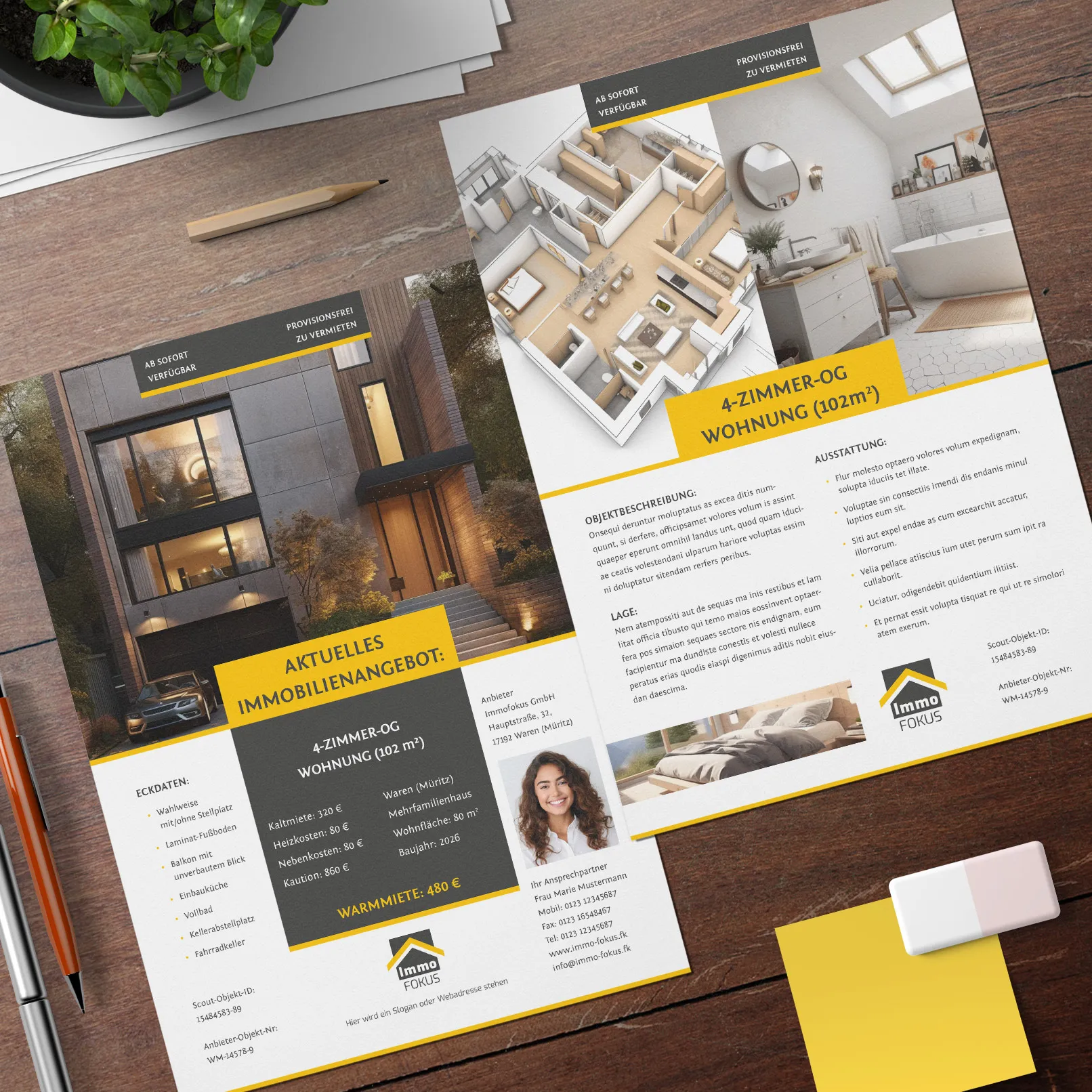
When selling your home, you will be confronted with different types of prospective buyers, including so-called "home-buying nomads". These are people who appear to be genuinely interested in buying, but have no real intention of buying and only attend viewings out of curiosity or for other reasons. Recognizing these home buying nomads early on is essential in order to use time, energy and resources efficiently. In this section, you will learn how to identify homebuyer nomads and protect your sales process from unnecessary delays.
The challenge of home buying nomads: Home buying nomads can slow down the selling process and cause frustration because they have no real intention of buying. They tie up the seller's attention and take away the opportunity for other serious buyers to view the home.
Strategies for recognizing home buying nomads:
- Pre-qualify: Consider pre-qualifying prospective buyers before scheduling viewings. This may include a brief interview regarding their buying intentions and financial requirements.
- Ask about financing: Inquire about the prospective buyer's financing situation. Seriously interested buyers usually already have an idea of how they would like to finance the purchase.
- Observe behavior: Look for signs of lack of interest or seriousness during viewings. Home buying nomads often show less engagement and ask fewer pointed questions.
- Follow-up communication: Track how prospective buyers respond to follow-up communication. Seriously interested parties usually remain engaged and respond promptly.
- References: In some cases, it can be helpful to ask for references or proof of intent to purchase, especially with prospects who are unusually quick to act.
If you're on the same page with a prospective buyer on price, it's time to ask for a credit check. Trust is great, but a closer look is even better. If the buyer's credit rating doesn't match, you could end up with an expensive contract reversal in the worst case scenario. Therefore, always insist on a credit report or, even better, a financing commitment from the bank supporting the buyer. As long as the buyer does not provide you with one of these documents, you should not end any ongoing discussions with other interested parties.
Mistake no. 10: Lack of flexibility and patience
The process of selling a house can be complex and time-consuming. A lack of flexibility and patience on the part of the seller can further complicate the process and put off potential buyers. In this section, we look at why flexibility and patience are crucial qualities for sellers and how their absence can affect the house sale.
The importance of flexibility and patience in the selling process: Flexibility allows you to be responsive to the needs and requirements of potential buyers, while patience is necessary to find the right buyer at the best possible price. Rash decisions or inflexibility can lead to you potentially accepting a less advantageous deal or losing prospective buyers.
The seller of my property previously had 30 interested parties who were not prepared to pay the price he wanted. It was only when my partner and I offered a price he could accept that he agreed to sell. In the end, his patience paid off financially. If he had rashly given in to the first best offer and accepted a price below his pain threshold, his financial gain would have been significantly lower.
Strategies to encourage flexibility and patience:
- Set realistic expectations: Understand that selling a home may take time and set realistic expectations regarding the time frame and sale price.
- Show adaptability: Be prepared to be flexible with appointments for viewings and respond to suggestions or needs from prospective buyers.
- Willingness to negotiate: Be open to negotiation and willing to compromise without compromising your basic sales objectives.
- Stress management: Develop strategies to deal with the stress and uncertainty that the sales process can bring.
- Monitor market developments: Stay informed about market developments and be ready to adjust your strategy as the market changes.
- Seek professional advice: Consider seeking expert opinions to broaden your perspective and make informed decisions.
Flexibility and patience are key qualities for any home seller. They allow you to respond effectively to market changes and buyers' desires and navigate the sales process successfully. By setting realistic expectations and being willing to adapt and remain patient, you can increase the chances of selling your home at a satisfactory price.
Successfully selling a home without an agent requires thorough preparation and avoiding common mistakes such as insufficient market knowledge, poor presentation and neglected legal aspects. Flexibility, patience and targeted marketing are also key to attracting potential buyers and getting the best price. By avoiding these pitfalls and focusing on professional presentation and negotiation skills, you can successfully and profitably complete your home sale.
